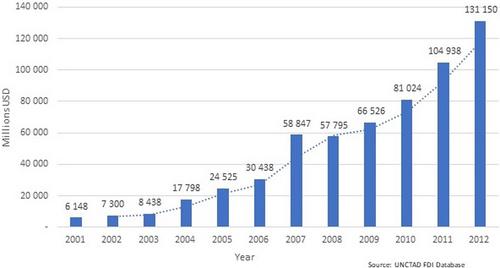南北投资联系和巴西的体面工作
IF 0.7
Q4 INDUSTRIAL RELATIONS & LABOR
引用次数: 0
摘要
在过去的25年里,金砖四国宣称自己是全球化的推动者。但是,他们新获得的突出地位对国内的工作环境意味着什么呢?本研究使用了一个涵盖巴西城市对外投资联系和工作条件的新型次国家级数据库,测试了在欧洲的直接投资是否会导致巴西引入体面的工作条件。采用面板数据分析和文本分析相结合的实证结果为投资效应提供了强有力的支持。研究结果表明,与高标准发达国家的经济一体化可以作为发展中国家提高劳动标准的有力机制。本文章由计算机程序翻译,如有差异,请以英文原文为准。

South to north investment linkages and decent work in Brazil
Over the last 25 years, the BRICs asserted themselves as drivers of globalization. But what does their new-found prominence mean for working conditions at home? Using a novel sub-national database covering outward investment linkages and working conditions in Brazilian municipalities, this study tests whether a direct investment in Europe leads to the introduction of decent working conditions in Brazil. The empirical results provide strong support for the investing-up effect using a mixture of panel data analysis and text analysis. The results suggest that economic integration with high-standard developed countries can act as a powerful mechanism for labor standard improvements in developing countries.
求助全文
通过发布文献求助,成功后即可免费获取论文全文。
去求助
来源期刊

Labour-England
INDUSTRIAL RELATIONS & LABOR-
CiteScore
1.30
自引率
16.70%
发文量
25
期刊介绍:
LABOUR provides a forum for analysis and debate on issues concerning labour economics and industrial relations. The Journal publishes high quality contributions which combine economic theory and statistical methodology in order to analyse behaviour, institutions and policies relevant to the labour market.
 求助内容:
求助内容: 应助结果提醒方式:
应助结果提醒方式:


